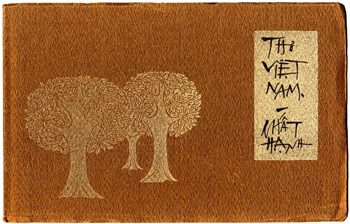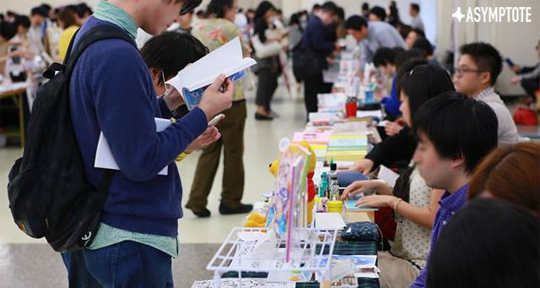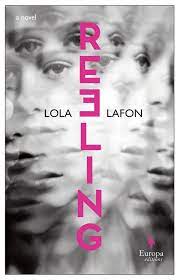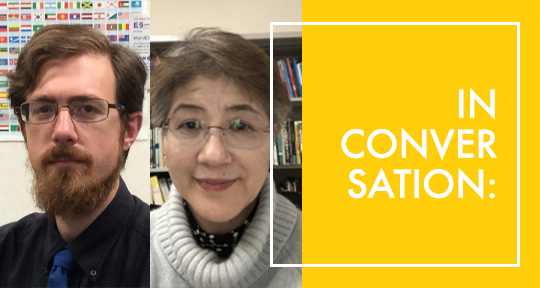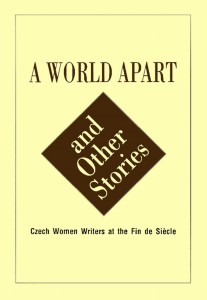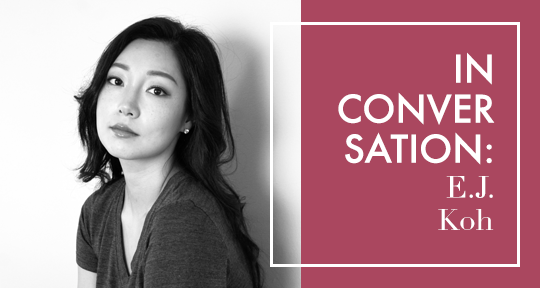Goethe had a famously tumultuous relationship with publishing, expressing that to “exchange [my work] for money seemed hateful to me.” The relationship between creation and distribution is always fraught with the masked workings of industry, further complicated in a world expedited and reconstituted by advancing technologies. Today, a text can go from the mind to the press in a matter of hours, via the mechanics of a profligate self-publishing industry; how does this implicate and transform our urge—and instinct—for storytelling? In this following essay, Assistant Editor Laurel Taylor looks into the culture of dōjinshi, the creation and dissemination of self-published works in Japan, examining our relationship to our creative endeavors, the promises and pitfalls of profit, and the paths our words take as they make their way into the world.
I think there are very few shared universalities across human histories and societies, but those that exist are tied up, I would argue, in the act of creation. The earliest remnants we have of our ancestors include inventions of the practical variety—tools for hunting, gathering, and protecting—but they also include artistic creations, the purposes of which are far more abstract. The traces of our past include cave paintings and sculptures, bone flutes and drums, but also less tangible things: Ainu yukar, Homeric epics, Indigenous Australian storytelling traditions, tales and chronicles performed orally long before they were written down. The far-ranging history of our urge to communicate, to express, and to entertain seems to ultimately serve the same desire: all of us want to tell stories.
In the modern age, storytelling has, for the layperson, taken on narrower and narrower definitions. Despite the oral legacy of narrative, the stories commanding large audiences are usually associated with the written word; even when such texts are transferred into drama, film, television, or song, it first begins on the page. This, of course, narrows the notion of who gets to tell stories. What once was the work of humanity has become the work of the writer, and the road to claiming “writer” as profession is a daunting one, which few people are ultimately able to take. Though we all still share an impulse toward creation, those impulses are restricted by educational demands, job demands, relationship demands, publisher demands, market demands. We live in a world of exigencies, where storytelling is overwhelmed by societal pressures. As such, the act of writing was, for many centuries, dominated by the wealthy, educated, and idle—and our literary canons demonstrate as much.
However, with the advent of mass production and the internet age, writing has been bolstered by more universalized education, increased access to tools, and growing networks of supportive writing communities. The gap between layperson and writer has been further shortened by bustling self-publishing economies, most evident in Japan through the culture of dōjinshi. Those familiar with Japanese popular culture may already be aware of this term in relation to comics and graphic novels, but it has a much broader definition. Written 同人誌, dōjinshi are broadly defined as “document[s] by like-minded people.” They can be made by anyone for any purpose: cooking, gardening, stamp-collecting, train-watching, and yes, storytelling. The closest kindred term in English might be “zine,” but in the Japanese context, dōjinshi lack that same underground punk aesthetic; it’s not uncommon for students to participate in after-school dōjinshi clubs or for retirees to print dōjinshi about their hobbies. Many of these publications are intended to apprise communities of municipal matters or to attract new members, but narratively inspired dōjinshi reproduce the stories of our day-to-day: those told around the dinner table, fanfiction, original children’s tales. They echo the narrative traditions of long ago, told in amphitheaters or sung around campfires or chanted to the churning of the plow, producing local community-based connections rather than mass market commodities. READ MORE…
